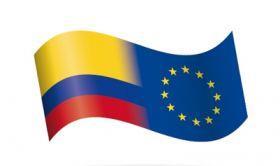
The Free Trade Agreement (FTA) between the European Union (EU) and Colombia is set to take effect as of 1 August following the conclusion of internal ratification procedures in June 2013.
The agreement will see markets open for products traded between the EU, Colombia and Peru, Proexport Colombia, the country’s investment promotion agency, explained in a press release.
Proexport Colombia has identified more than 800 Colombian products that could potentially tap into the European market.
Products such as coffee, exotic fruits and vegetables, textile and apparel are those with the greatest potential according to the agency.
Colombia already exports a range of fresh produce to the EU, including bananas, pineapples, physalis, passionfruit and, more recently, avocados.
The South American nation currently ranks as the leading supplier of physalis to the UK market.
Under the FTA, customs duties on industrial and fisheries products will be lifted and trade in agricultural products will become significantly more open at the end of the transition period.
Brussels estimates that exporters could save as much as €500m in duties annually as a result of the agreement, which will also help Colombia compete with the host of other countries that already have FTA agreements with the EU such as Mexico and Chile.
According to the European Commission the main benefit of the new trade regime will come from a “more transparent, predictable and enforceable business environment”, which is expected to create significant new opportunities for businesses and consumers on both sides.
Better conditions for creating business links should lead to “more integrated value chains and make it easier to transfer technology”.
The agreement includes provisions on the respect of human rights, the rule of law as well as the effective implementation of international conventions with regards to environmental protection and labour rights.
The EU remains one of the largest investors in Colombia. Trade between the two parties has shown a significant increase during the last few years with its volume reaching more than €14bn in 2012.
“This agreement opens a new chapter in EU-Colombia relations and I do hope that companies on both sides will take full advantage of the many opportunities the deal offers,” noted Karel de Gucht, the EU Commissioner for Trade.
“Let’s use this trade agreement as a springboard for a closer growth-based relationship between the EU and the Andean region.”



